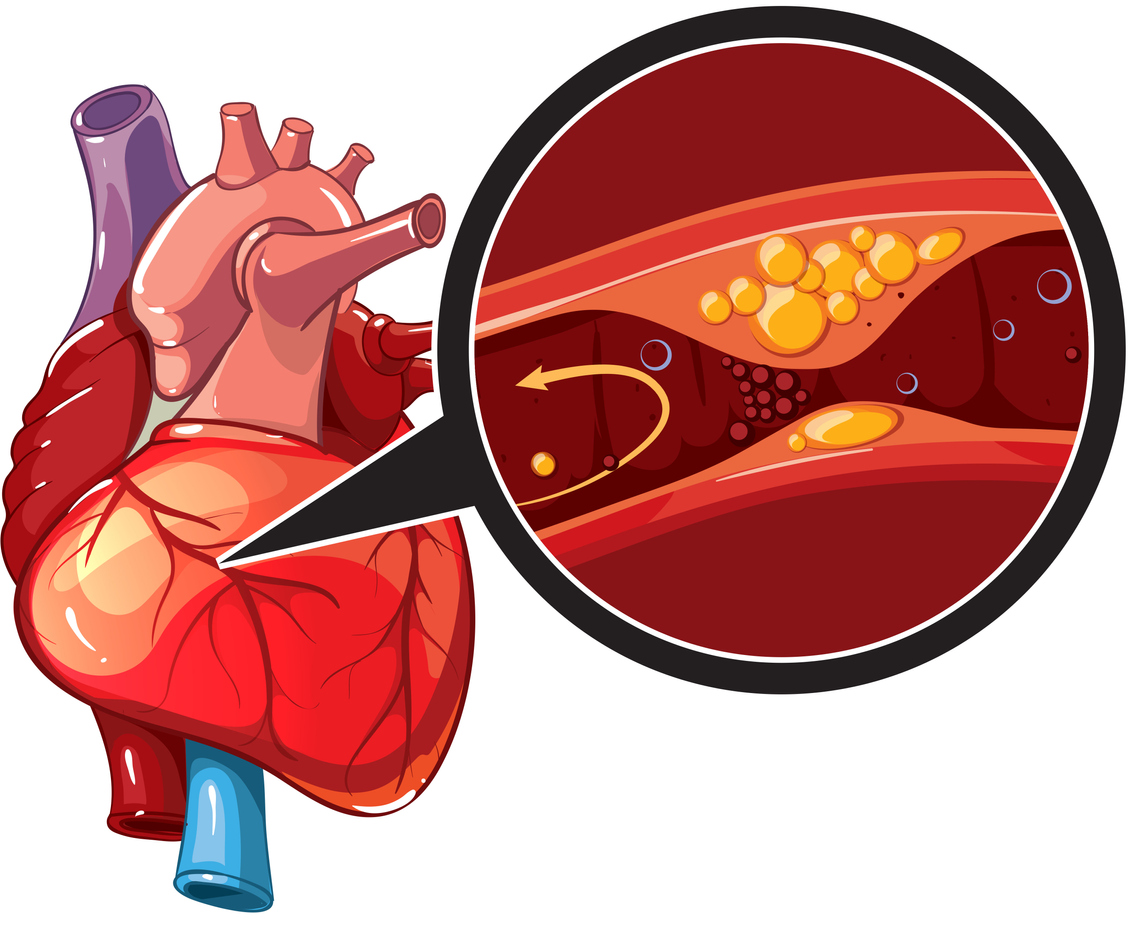Let’s Discuss Coronary Artery Disease?
Coronary artery disease (CAD) is defined as a narrowing or blockage of your coronary arteries caused by plaque buildup. . Plaque buildup in these arteries reduces the amount of blood that can reach your heart.
Different types of coronary artery disease
Coronary artery disease is classified into two types:
This is the chronic form of stable ischemic heart disease. Over time, your coronary arteries gradually narrow. Your heart receives less oxygen-rich blood over time. You may experience some symptoms, but you are able to live with the condition on a daily basis.

Acute coronary syndrome is a medical emergency that happens all of a sudden. The plaque in your coronary artery ruptures suddenly, forming a blood clot that prevents blood flow to your heart. This sudden blockage causes a heart attack.
What effects does coronary artery disease (CAD) have on my body?
According to Best Heart Doctor in North Delhi – A heart attack is the most common complication of coronary artery disease. This is a potentially fatal medical emergency. Your heart muscle begins to die as a result of not receiving enough blood. . You require immediate medical attention in order to restore blood flow to your heart and save your life.
CAD can also weaken your heart over time and lead to complications such as:
- Arrhythmias (like atrial fibrillation)
- Arrest of the heart.
- Shock from cardiogenic causes.
- Failure of the heart.
What are the symptoms of coronary artery disease (CAD)?
For a long time as per Best Heart Specialist in Fortis Hospital you may have no symptoms of coronary artery disease. CAD is a long-term condition. Plaque formation takes many years, if not decades. However, as your arteries narrow, you may experience mild symptoms. These symptoms indicate that your heart is working harder to pump oxygen-rich blood throughout your body.
Chronic CAD symptoms include: The most common symptom is stable angina. Stable angina is characterised by intermittent chest pain or discomfort that follows a predictable pattern. It is most noticeable during physical activity or emotional distress. When you rest or take nitroglycerin, it goes away.
Dyspnea (shortness of breath): Some people experience shortness of breath during light physical activity.
A heart attack is sometimes the first symptom of CAD. Heart attack symptoms include:
- Pain or discomfort in the chest (angina). Angina can cause mild to severe discomfort. Heaviness, tightness, pressure, aching, burning, numbness, fullness, squeezing, or a dull ache are all possible sensations. The pain could spread to your shoulder, arm, neck, back, or jaw.
- Breathing difficulties or shortness of breath
- Dizziness or lightheadedness
- Palpitations in the heart.
- Nausea, stomach pain, or vomiting (This could be indigestion in many case )
- Weakness.
Women and people with AFAB are more likely to have additional, unusual symptoms such as:
- Shortness of breath, fatigue, and insomnia prior to the heart attack
- Back, shoulder, neck, arm, or stomach discomfort
- The heart is pounding.
- Feeling warm or flushes
What is the cause of coronary artery disease?
Best Heart Doctor Delhi says – Coronary artery disease is caused by atherosclerosis. Atherosclerosis is the gradual accumulation of plaque in your body’s arteries. Coronary artery disease occurs when plaque restricts blood flow in your coronary arteries.
Plaque is made up of cholesterol, waste, calcium, and fibrin (a substance that helps your blood clot). As plaque accumulates along your artery walls, your arteries narrow and stiffen.
What factors contribute to the development of coronary artery disease?
A number of risk factors contribute to coronary artery disease.. Some things are beyond your control. Others you may be able to control by changing your lifestyle or taking medications. Discuss the risk factors listed below with your provider and how you can manage them.
Uncontrollable risk factors (non-modifiable risk factors)
Age: As you get older, your risk of developing CAD rises. After the age of 45, men and people with AMAB are at a higher risk. After the age of 55, women and people with AFAB are at a higher risk.
You are at a higher risk if any of your biological family members have heart disease.. It’s especially critical to find out if they have premature heart disease. This indicates that they were diagnosed at a young age (father or brother before age 55, mother or sister before age 65).
Risk factors in your daily life
Consume a lot of saturated fat or refined carbohydrates.
Insufficient physical activity
A lack of sleep
Tobacco use, whether smoking, vaping, or otherwise.
What is the procedure for diagnosing coronary artery disease?
A physical exam and testing are used by healthcare providers to diagnose coronary artery disease.
Your provider will do the following during your physical exam:
Check your blood pressure.
- Inquire about your symptoms and how long you’ve had them.
- Inquire about your medical background.
- Inquire about your way of life.
- Inquire about your family history. They’ll be interested in learning about heart disease in your biological parents and siblings.
Director & HOD
Interventional Cardiology and Heart Failure
MBBS, MD, DM (AIIMS)
Dr. Naresh Kumar Goyal has an experience of more than 20+ years in treating cardiac patients and as an incharge of the heart failure programme at Fortis Hospital Delhi, is involved in many projects related to heart failure. He has got his DM expertise in Cardiology from the most prestigious institute of India AIIMS which makes him the best Physician in Cardiac Care.
Address :- Fortis Hospital
AA-299, Shaheed Udham Singh Marg, AA Block, Poorbi Shalimar Bag, Shalimar Bagh, Delhi, 110088
For Booking your Appointment:-
Call on:- 9717173309
Mail id:- nkg1971@gmail.com
Or you can visit our website:- https://drnareshkumargoyal.in/




